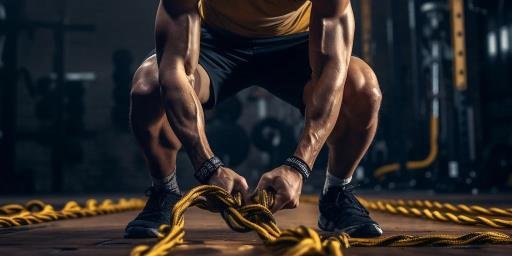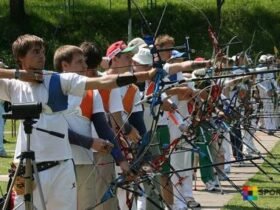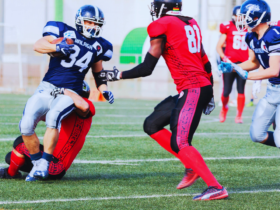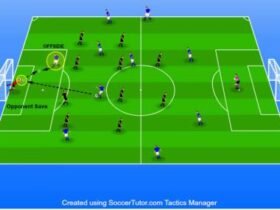Are you a sportsperson looking to improve? The right workout regimen is crucial to achieving peak performance. This comprehensive guide will explore effective workouts that target various aspects of sports performance, helping you reach your athletic goals.
Strength Training for Power and Explosiveness
Strength training is a cornerstone of athletic development. Incorporate exercises like squats, deadlifts, bench presses, and overhead presses to build muscle mass and increase power. Concentrate on complicated motions that work several different muscle groups.
Plyometrics for Explosive Power
Plyometric exercises involve explosive movements that train your muscles to contract and relax rapidly. Include box jumps, medicine ball slams, and depth jumps in your routine to improve your explosiveness and agility.
Interval Training for Endurance and Speed
High-intensity workouts and rest intervals are alternated during interval training. This method enhances cardiovascular fitness, endurance, and speed. Try incorporating sprints, hill repeats, or swimming intervals into your workouts.
Flexibility and Mobility Training for Injury Prevention
Flexibility and mobility are essential for optimal athletic performance and injury prevention. Practice dynamic stretches and mobility drills before workouts to warm up your muscles and improve your range of motion.
Core Strength Training for Stability and Balance
A strong core is vital for stability, balance, and overall athletic performance. To develop your core muscles, incorporate workouts like planks, Russian twists, and bicycle crunches.
Sports-Specific Drills for Skill Development
In addition to general fitness training, incorporate sports-specific drills to improve your technique and skills. Practice drills related to your sport to enhance your performance on the field or court.
Rest and Recovery for Optimal Performance
Adequate rest and recovery are essential for muscle growth, repair, and preventing overtraining. Make sure your training regimen includes rest days and that you get adequate sleep.
Nutrition for Athletes
Proper nutrition is crucial for fueling your body and supporting athletic performance. Eat a well-balanced diet that is high in protein, carbs, and good fats. Stay hydrated by drinking plenty of water throughout the day.
Listen to Your Body and Avoid Overtraining
Pay attention to your body’s signals and avoid overtraining. If you experience persistent pain or fatigue, take a break and rest.
Conclusion
By incorporating these workouts and training principles into your routine, you can significantly improve your sports performance. Remember to consult with a healthcare professional or certified trainer before starting a new workout regimen. Consistent effort, dedication, and proper training will help you achieve your athletic goals.
FAQs
- How often should I work out for optimal sports performance? The ideal frequency depends on your individual goals and training level. Generally, aim for 3-5 workouts per week, including a mix of strength training, cardio, and flexibility exercises.
- What is the best time of day to work out for athletes? Your schedule and personal preferences will determine the ideal time for you to work out. Try a few different times to see which one suits you the best.
- Can I combine different types of workouts in the same session? Yes, combining different types of workouts can be effective. For example, you could start with a warm-up, followed by strength training, plyometrics, and a cardio session.
- How long should my workouts be? The duration of your workouts will vary depending on your fitness level and goals. Aim for 30-60 minutes per session.
- What is the importance of warm-up and cool-down? Warm-up exercises prepare your body for physical activity by increasing blood flow and muscle temperature. Cool-down exercises help your body gradually return to a resting state and prevent soreness.









